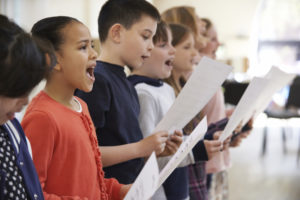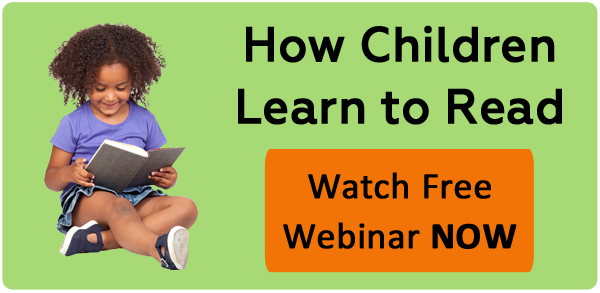
My earliest memory of reading is singing from the Baptist hymnal. I remember being four-and-a-half, standing next to my mother, moving my finger under each hyphenated syllable as we sang. This was a new honor, as my mother had always done that job. Now I could do it!
I know that singing with the hymnal was very important to my reading development. There has not been much research published about how singing aids reading development. For some of my students, singing with a songbook and having some tapes with lyrics available, have been the activities that finally made reading fun and easy for them.
Songs are wonderful memory tools and that is why almost every commercial has music in the background or a jingle. We remember things better when we associate something with music. Every television show has to have a theme song, and for many show tunes we only have to hear two or three notes to think of that show. The Flintstones comes to mind as a perfect example.
Be as savvy as all the advertisers in America and use music to help your children learn and remember things more easily.
When we talk about acquiring spoken language, we have two kinds of language skills that we focus on—receptive language and expressive language.
Receptive language refers to how we understand what we hear and see. Receptive language skills include listening, reading, writing and vocabulary enrichment.
Expressive language refers to how we can express our thoughts and emotions. Expressive skills include speaking, debating, dramatic presentation, reciting poetry, singing, and writing.
For most of us, our receptive language skills are at a higher level than our expressive language skills, meaning we can understand and act on a higher level of language than we can express.
For example, we can listen with understanding to our doctor describe a diagnosis and treatment, then feel tongue tied when we try to answer the question, “What did the doctor say?”
These same ideas apply to acquiring written language. We can understand much more of what we read than what we can express. Our reading vocabulary is usually higher than our spoken vocabulary, meaning we can read at a higher level that what we can fluently read out loud or express in our own words.
Singing helps build our expressive language skill along with developing our long-term memory.
Singing forces the brain to use both hemispheres. In split brain theory the left side of the brain is involved in verbal skills and the right side is involved in artistic, emotional and physical skills. There is overlap of skills and thinking preferences in the brain, but the more often you can get a variety of actions involved in a learning activity, the stronger the learning experience will be.
Singing is one of those activities that involve the whole brain.
Encourage your child to sing and sing along with him or her. If you feel that you “can’t carry a tune in a bucket”, purchase some tapes and sing-along books like The Wee Sing Series to get you started. Even if you sing off key, your own singing is the best way to use music as a teaching tool for your children.
For some children, singing as they read, or reading as they sing, will be the activity that will make reading become a fun and enjoyable activity.
For other children it might be the activity that turns discouragement into success.
Next: The Importance Of The Hand In Language Development


Brilliant….Can’t believe I’d never thought of it…Tried it today with Christmas Carols and a cuddle on the couch and it worked like a charm! Thanks so much!
Dawn,
That’s really putting an idea into action!
Wish I were there to sing, “I Wish You A Merry Christmas!”
Maren,
This is such a wonderful reminder. We sing to our 2 year-young Montessorian all. the. time. Each night before bed we sing at least two (often more) songs together. He knows the verses to Hark the Herald Angels Sing and caused quite a stir at church this past Sunday when he clearly knew every word: reconciled, triumph, proclaim (all wonderfully large words for him.).
My mom often shares the story that when she was in grammar school in Chicago every classroom had a piano and every teacher played. “Time for lunch!” her teacher would sing. “Now we go outside to play in the sun!” she’d sing as she sat at the piano.
I would be nice to have more interaction with music during acquisition of language and other skills.
Thanks for this post…I’m sharing with my mom!
-Claire
Claire,
Yes, singing seems to make everything better!
Interesting read. I am currently trying to put this theory to the test in my classroom. Do you recommend any other literature that I could read to help? I am working with a student who loves to sing but has very poor speaking and listening skills. The minute he sings, it’s clear and he remembers the message. I would love to see what else is out there
Shani,
Aloha!
Here is a link to a study about The Impact of Singing Integrated Reading Instruction:
https://scholarscompass.vcu.edu/cgi/viewcontent.cgi?article=4933&context=etd
Songs for teaching:
http://songsforteaching.net/making-the-music-reading-connection/
Shirley Handy’s Singing-Reading Connection Workshop:
http://www.cjtime.com/about-shirley-handy/
I think that once you get started you’ll find it fun.
Let me know how it goes.